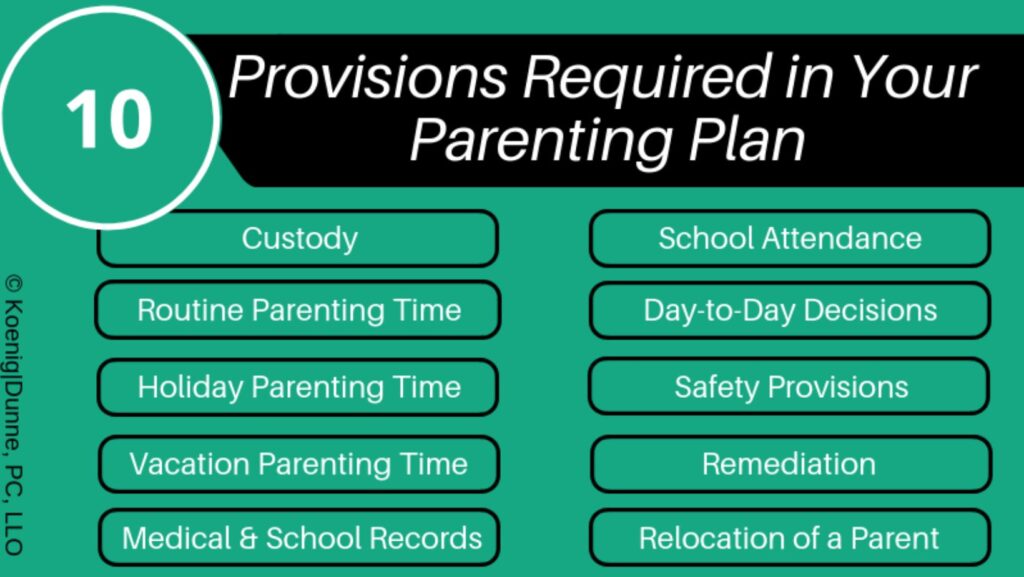Parenting Plan Washington State
Growing up in Washington State, I’ve come across many families navigating the complexities of co-parenting. One crucial aspect that often arises is establishing a Parenting Plan Washington State to ensure clear guidelines and expectations for both parents. These plans are not only beneficial for the parents but also prioritize the well-being and stability of the children involved.
In Washington State, a Parenting Plan Washington State outlines custody arrangements, visitation schedules, decision-making responsibilities, and more. It serves as a roadmap for how parents will raise their children post-separation or divorce. Understanding the legal requirements and considerations when creating a parenting plan is essential to avoid conflicts and misunderstandings down the road.
I’ve witnessed firsthand how having a well-thought-out Parenting Plan Washington State can alleviate stress and promote effective co-parenting. By addressing key factors such as holidays, school breaks, communication methods, and dispute resolution mechanisms in the plan, parents can foster a harmonious co-parenting relationship while prioritizing the best interests of their children.

Understanding Parenting Plans in Washington State
Parenting Plan Washington State are crucial documents outlining the custody and visitation arrangements for children of separated or divorced parents. These plans detail how decisions regarding the child’s upbringing will be made, including schedules for residential time with each parent. They aim to prioritize the child’s well-being while ensuring both parents have an active role in their upbringing.
When creating a parenting plan in Washington State, key factors such as the child’s age, school schedule, extracurricular activities, and each parent’s availability are taken into consideration. The plan typically includes a regular schedule for when the child will be with each parent, as well as provisions for holidays, vacations, and special occasions. Additionally, it outlines how important decisions about the child’s education, healthcare, and overall welfare will be made collaboratively.
Courts in Washington State encourage parents to work together to create a parenting plan that serves the best interests of their child. If parents are unable to reach an agreement on their own, mediation or court intervention may be necessary to establish a suitable plan. It is essential that these plans are thorough and comprehensive to prevent misunderstandings or conflicts in the future.
Parents should familiarize themselves with Washington State laws regarding parenting plans to ensure compliance with legal requirements. By understanding the intricacies of these plans and seeking professional guidance if needed, parents can navigate this process effectively while prioritizing their child’s needs above all else.

Key Components of a Parenting Plan
When creating a PARENTING PLAN in Washington State, it’s crucial to include key components that address the needs and well-being of the children involved. These components serve as a roadmap for co-parents to navigate their responsibilities effectively. Here are essential elements to consider:
1. Custody Arrangements
- Outline the custody arrangements clearly, detailing which parent the child will reside with and when.
- Specify how major decisions regarding the child’s upbringing will be made, emphasizing parental cooperation.
2. Visitation Schedule
- Establish a visitation schedule that includes regular visitation times and any special occasions or holidays.
- Ensure flexibility in the schedule to accommodate changes due to unforeseen circumstances.
3. Communication Protocols
- Define communication protocols between co-parents, such as preferred methods of contact and frequency of updates.
- Encourage open and respectful communication focused on the child’s best interests.
4. Child Support Guidelines
- Address financial obligations by including detailed provisions for child support payments.
- Comply with Washington State guidelines to ensure fairness in financial contributions from both parents.
5. Dispute Resolution Mechanisms
- Include procedures for resolving disputes that may arise between co-parents regarding parenting issues.
- Consider mediation or counseling options before escalating conflicts to legal proceedings.
In crafting a comprehensive parenting plan, collaboration, clarity, and consideration for the children’s welfare should remain at the forefront. By incorporating these key components into your plan, you can establish a framework that promotes effective co-parenting and prioritizes the needs of your children.

